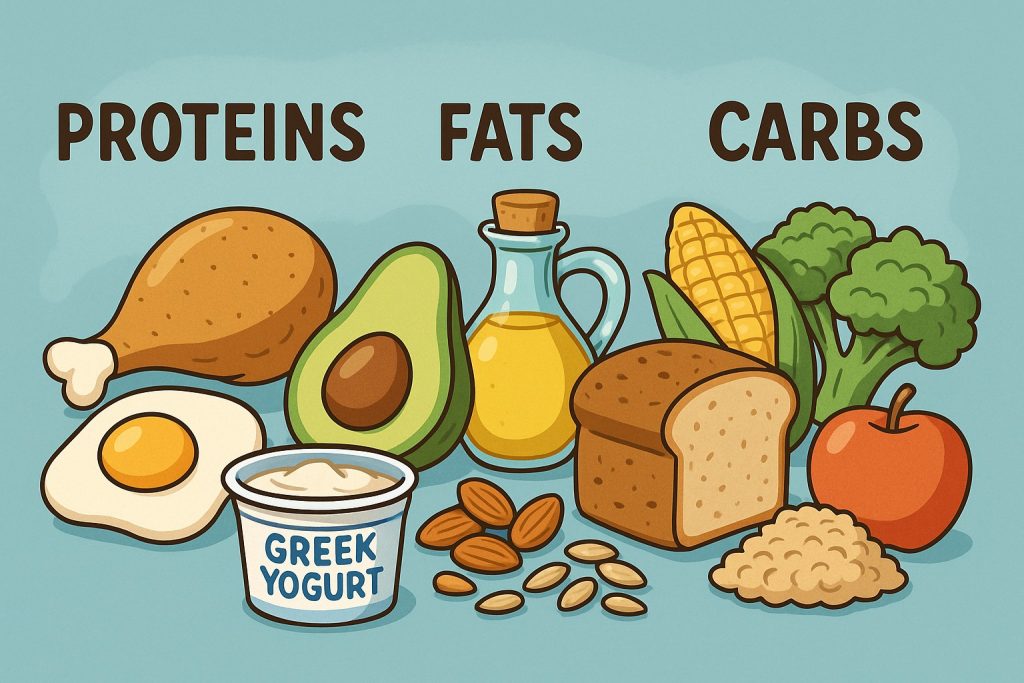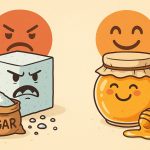Every time we eat, we consume a mix of macronutrients* — proteins, fats, and carbohydrates. These three groups provide energy and support vital functions, but how much of each do you actually need?
The answer depends on your age, weight, activity level, and goals — whether you’re trying to lose weight, build muscle, or just stay healthy.
1. Proteins: The Body’s Building Blocks
Proteins* are essential for repairing tissues, building muscle, and supporting the immune system. They are made of amino acids, some of which must come from food.
- Recommended intake:
Around 0.8 grams per kg of body weight for sedentary adults
Up to 1.6–2.2 g/kg for athletes or those trying to build muscle - Best sources:
Eggs, chicken, fish, legumes, tofu, Greek yogurt
2. Fats: More Than Just Energy Storage
Fats* help with hormone production, brain health, and absorption of fat-soluble vitamins (A, D, E, K). The key is choosing the right kinds.
- Recommended intake:
20–35% of your total daily calories - Best sources:
Avocados, nuts, seeds, olive oil, fatty fish - Limit:
Trans fats and excessive saturated fats
3. Carbs: The Body’s Main Fuel
Carbohydrates* are the brain’s preferred energy source. Not all carbs are equal — whole, fiber-rich carbs are best.
- Recommended intake:
45–65% of daily calories - Best sources:
Whole grains, vegetables, fruits, legumes - Limit:
Refined sugar, white bread, sweet drinks
How to Personalize Your Ratio
Start by calculating your Total Daily Energy Expenditure (TDEE) — the number of calories your body uses each day. Then adjust your macronutrient split based on your goal:
| Goal | Protein | Fat | Carbs |
|---|---|---|---|
| Fat loss | 30% | 30% | 40% |
| Muscle gain | 30% | 20% | 50% |
| General health | 20–25% | 25–30% | 45–55% |
Always listen to your body, and when in doubt, consult a registered dietitian.
Glossary
- Macronutrients* — nutrients the body needs in large amounts: protein, fat, carbohydrates.
- Proteins* — molecules made of amino acids, needed for growth and repair.
- Fats* — essential nutrients used for energy and hormone production.
- Carbohydrates* — sugars and starches that serve as the body’s main energy source.


